Happy Women’s Day
There’s no better way to celebrate Women’s Day than to prioritize your health, and that of the women in your life.
Worldwide Statistics

Cardiovascular Disease
Heart disease is responsible for 25% of deaths among women, yet historically, because men were more likely to be affected by it, women’s cardiac health was ignored. Consequently, earlier symptoms were not caught until the disease had progressed. According to the Center for Disease and Control Prevention, long-term symptoms include:
- Heaviness in the chest
- Pain in the neck, jaw or throat, upper abdomen or back
- Nausea and vomiting
- Fatigue
Symptoms of a heart attack include chest pain, shortness of breath and weakness in arms. If you experience any, or all, of these symptoms you should call emergency services.
The easiest steps to look after your heart are to control your blood pressure, avoid smoking, engage in low-intensity exercise for half an hour every day, and maintain a healthy weight through eating nutritious food.
Breast Cancer
Breast cancer is common among women. The World Health Organization (WHO) recommends having an annual mammogram and carrying out monthly self-checks. Whilst standing in front of a mirror, check regularly for any changes in the skin, and feel for lumps using a light pressure, checking from under your armpits, making circular motions on and under the breast.
You should notify your doctor if you notice any changes, see discharge or feel pain.
Depression And Anxiety
More women than men are affected by depression, and this in part may be due to hormonal imbalances. Furthermore, there are particular disorders related to depression that may affect a woman throughout her lifetime, other than PMS, such as perinatal depression which can start from pregnancy and continue after childbirth, and perimenopausal depression, which can start as a woman begins menopause.
The signs to look out for are irritability, a loss of sex drive, loss of motivation, low self-esteem, feeling hopeless, feeling tired, and changes in appetite and in sleep patterns. In some, suicidal thoughts can also occur.
Depression is a treatable condition, especially if you seek support early on. Speak to a professional if you have had any of the symptoms for two or more weeks.
Prevention is better than cure
Repeatedly, these steps are found to benefit our health in a number of ways, from reducing various cancers, improving heart health as well as being beneficial to mental wellness:
Adopt a healthier eating pattern.
- Add fruits and vegetables into your diet that are rich in antioxidants which, are shown, to support disease prevention, have a beneficial effect in brain function, aid the cardiovascular system, reduce inflammation, and contribute to mental health improvements.
- Drink water instead of sugary and caffeine rich drinks to improve digestion, aid in regulating the body’s temperature and maintain the body’s electrolyte balance.
- Limit saturated and trans fats as well as sodium, as both are related to heart related issues to which women are more prone to as they grow.
- Consume lean meats rather than processed or fatty cuts, and exchange salt with herbs and spices.
Exercise at least 30 minutes a day.
- Engage in team sports, this could also have the additional advantage of being a way to socialize if you meet others.
Stay Connected
- Keep your lines of communication open. Feeling connected with others releases oxytocin, the hormone that is responsible for erasing the effects of stress.
Let Women’s Day serve as a reminder to schedule your monthly and yearly check-ups.
Happy Women’s Day!
It may seem that the number of people diagnosed with Attention Deficit Hyper Disorder has increased dramatically over the past few years. You may think that ADHD (as it is more frequently referred to), is simply the label given to children who cannot sit still in class. However, as research in the field of neurodivergence progresses, we are beginning to understand how ADHD manifests in adults.
You may be wondering if it is worth investigating at this stage in your life if you have ADHD. You’ve finished school, you’re in stable employment and on the surface of it, you don’t seem to have any difficulties. So why should you get tested? Getting tested and diagnosed with ADHD is more than just about having extra help at school. Typically, people who were tested were people who are predominantly hyperactive, however, there are other symptoms of ADHD.
ADHD is now considered to be a clinical difficulty with executive functioning. Executive functioning is the group of skills that allow you to organize thoughts and activities, prioritize what to do, manage time efficiently, and make decisions. Difficulties in these domains manifest as difficulties keeping your desk organized, scheduling your diary well, regulating your emotions, and sticking to a task. For someone with these difficulties, it is hard to keep track of eveyrthing you have to do, and what steps you need to take to complete a task.
All of us experience ADHD symptoms, forgetting where we left our phone or glasses, overbooking our schedule and realising too late that we have to be in two places at once. Does this mean you have ADHD? No. The frequency of how often you do these things, and they extent to which they have a negative impact on your life will determine if you fit the diagnostic criteria.
Being forgetful makes the everyday tasks and routine overwhelming. The problem is compounded by the fact that people around you may be resentful of the consequences that the diagnosis has on their life. Essentially, we have to acknowledge that living with someone with ADHD has real-life implications. In fact, ADHD coaches and experts report that the hardest part about living with ADHD is the judgement and shame and resentment, rather than the symptoms themselves. Remember that it’s not your fault or your choice, to have ADHD. However, this doesn’t mean you don’t have any control over the situation. You do have a choice to work with the diagnosis.
Learning if you have the diagnosis has several benefits. Firstly, it helps you understand your past experiences, and reconsider all the labels you gave yourself. Looking back, you may see that people thought you were lazy or stupid, but you knew that you were trying your best to achieve, only to find stumbling blocks. You may have felt unable to sit still long enough to focus on the material in front of you. Showing yourself some empathy helps with improving your motivation, prevents depression, and makes you more understanding of others too.
The next benefit, is that you can now recognise what your difficulties are, and how you can build strategies to address them. For example, you’ll know that you’re at high risk of losing your attention quickly, so you should avoid scheduling back to back meetings. You can take more frequent breaks. If you know that you’re also more at risk of getting agitated, you’ll start to recognise what triggers you, and learn about what situations to avoid. For example, if you know that people shouting is something that makes you lose your temper, you might want to share this with your loved ones, so that they can try to modify their behaviour.
Recognize Unhealthy Strategies
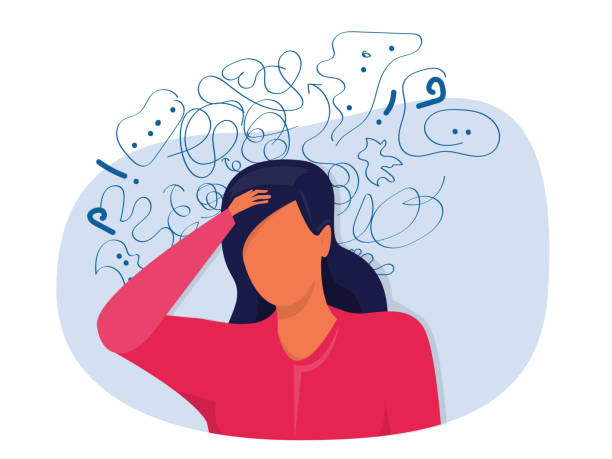
All of us resort to doing things we know we shouldn’t, because in the long-term they have consequences, but short-term, they provide comfort, or relieve stress. The classic example of course, is using sugar, or smoking, or drinking. People with ADHD are more likely to have to turn to external ways of calming themselves, because of the brain’s difficulty in regulating emotions. They are therefore more likely to engage in unhealthy behaviours, and subsequently, have to address the consequences of those behaviours, over and above ADHD symptoms. Therefore, it is crucial to you recognise what behaviours you may be in engaging in, and finding alternatives, and what pushes you to depend on these behaviours in the first place. Avoiding your triggers ensures that you will have less need to turn to the behaviour.
Once you recognise these behaviours, ask yourself, what purpose does this serve? When I reach for a drink, is it because I want to calm down? What can I do instead to ease my nerves? If you feel you can’t do without the behaviour, set yourself the challenge to delay the behaviour. Start small. Can you wait five minutes before reaching for the cigarette? If that’s doable, set yourself a bigger challenge, each time making the delay longer. There will be days where you might not be able to wait, and on other days
Set a Routine
Humans are by default, creatures of habit. We need predictibility, so that our brain can learn how to be more efficient on doing a task, rather than predicting what is going to happen next. Without having to use our resources on trying to figure out what comes next, we can divert our attention to other tasks. This in effect, is a way of channeling our mental capacity towards more demanding tasks.
Incorporate the following measures into your routine:
Start with Alone-Time – If you live with a family, set your alarm clock 15 minutes before everyone else, to start your day undistracted.
Schedule 15 minutes of “Screw-up” time. This is time in the day when you can catch up on something if things don’t go according to plan. This could be traffic, or someone keeping you waiting, or an unexpected phone call. Don’t plan your day with everything back to back, without the space and flexibility to accommodate for things going wrong.
Plan as much of your day and week as you can. This helps you avoid having to make last-minute decisions, and then trying to achieve them. For example, make a meal plan for the week, set out your clothes for the next day rather than waiting until the morning, and risk running late because you can’t find the right thing to wear. Constantly having to make decisions can be overwhelming and tiring.
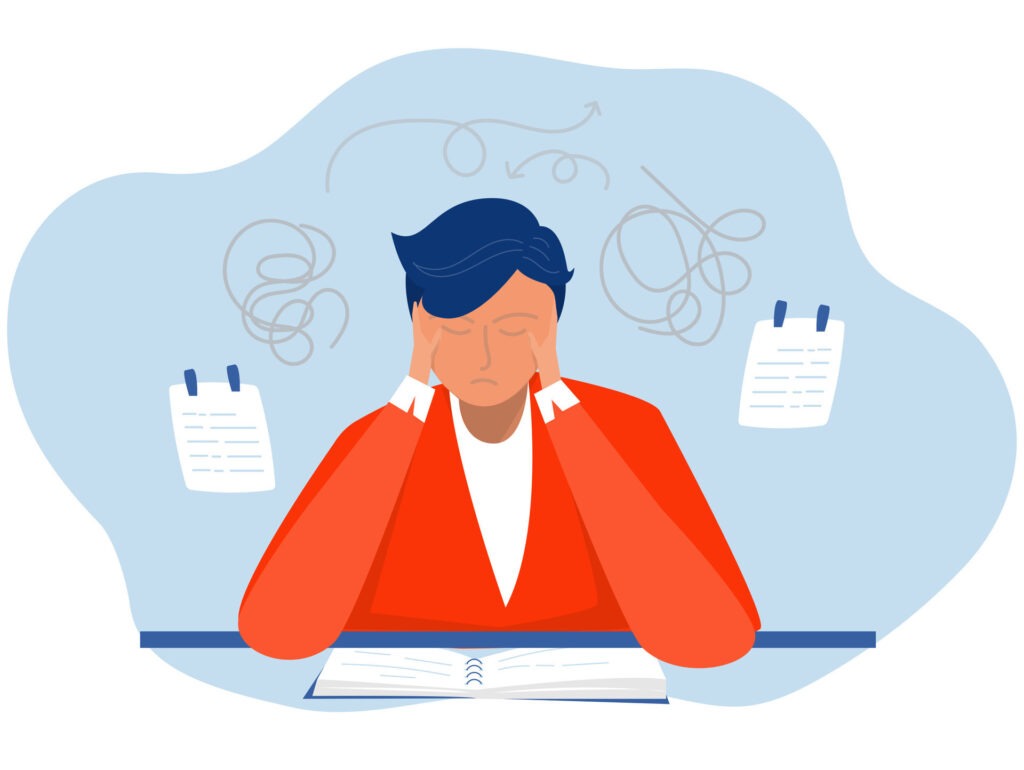
Addressing Attention Difficulties
To compensate for attention difficulties, use reminders that are effective. Having a daily email reminder that you will ignore is useless. On the other hand, having a loud alarm that sets off at a time when you are able to complete a task is more likely to remind you of what you need to do, and you are more likely to complete the task.
Recognize if you are a visual or auditory learner. Do you learn new things by seeing them written down? Do you need to write things down yourself? Do you prefer the use of pictures? Do you need to be moving in order to be able to concentrate? It may not be possible for you to physically get up and move whilst you are listening to instructions, so you could try using something that allows you to incorporate movement discretely, for example, using a fidget spinner, playing with a pen, or if permissible, having a standing desk if you are in an office environment.
Do not spend too long on one task. Give yourself a time-limit, then take a break and move on to another task. You can revert back to the first task later on in the day. This gives you the chance to redirect your focus, without getting bored on any single task.
Engage in activities that require both concentration and coordination. This improves your working memory, and your ability to control impulses. If you have time for a yoga class, that’s great, but if you want something simpler and less time-demanding, you can practice walking on a straight line, whilst balancing something in your non-dominant hand. You can spend as little as two minutes on this simple exercise, it’s free, and it has long-term benefits, as well as the immediate advantage of helping you calm down if you are feeling agitated.
If you feel you need further support, speak to a psychologist or doctor about your concerns.

Join us for an afternoon at the Istanbul Marriott Hotel Asia to discuss mental health in the shipping industry through panels, conversations, and networking.
???? For registration:
https://lnkd.in/dP4qxtuM
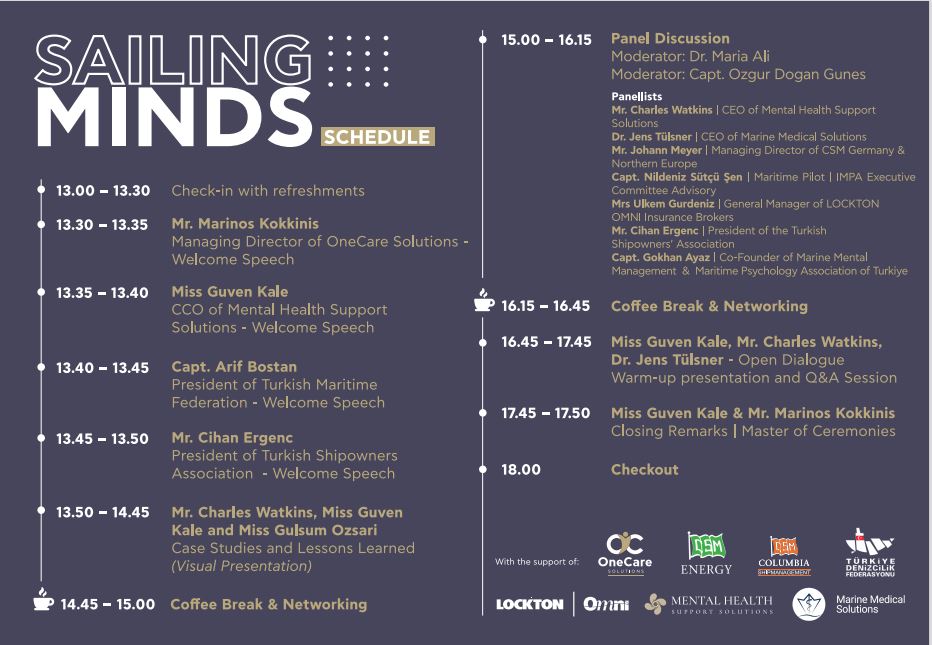
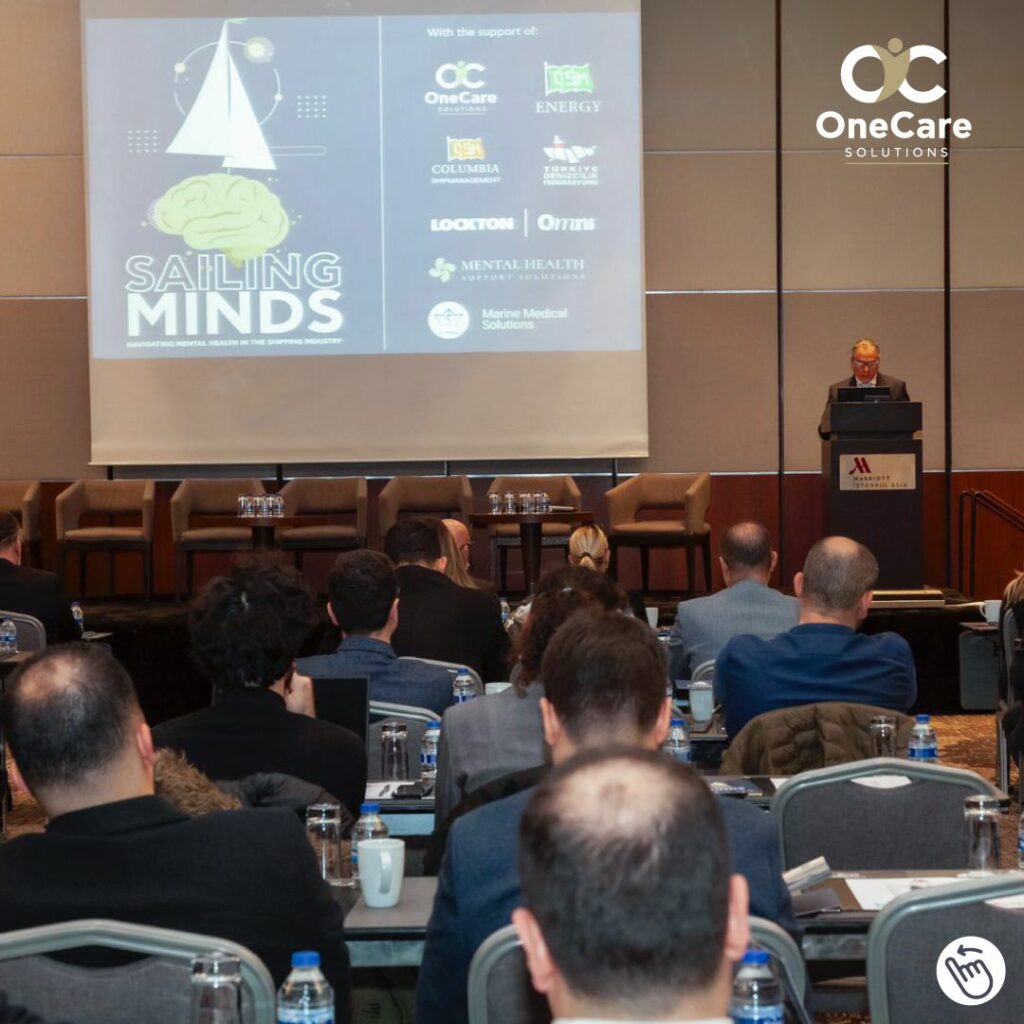
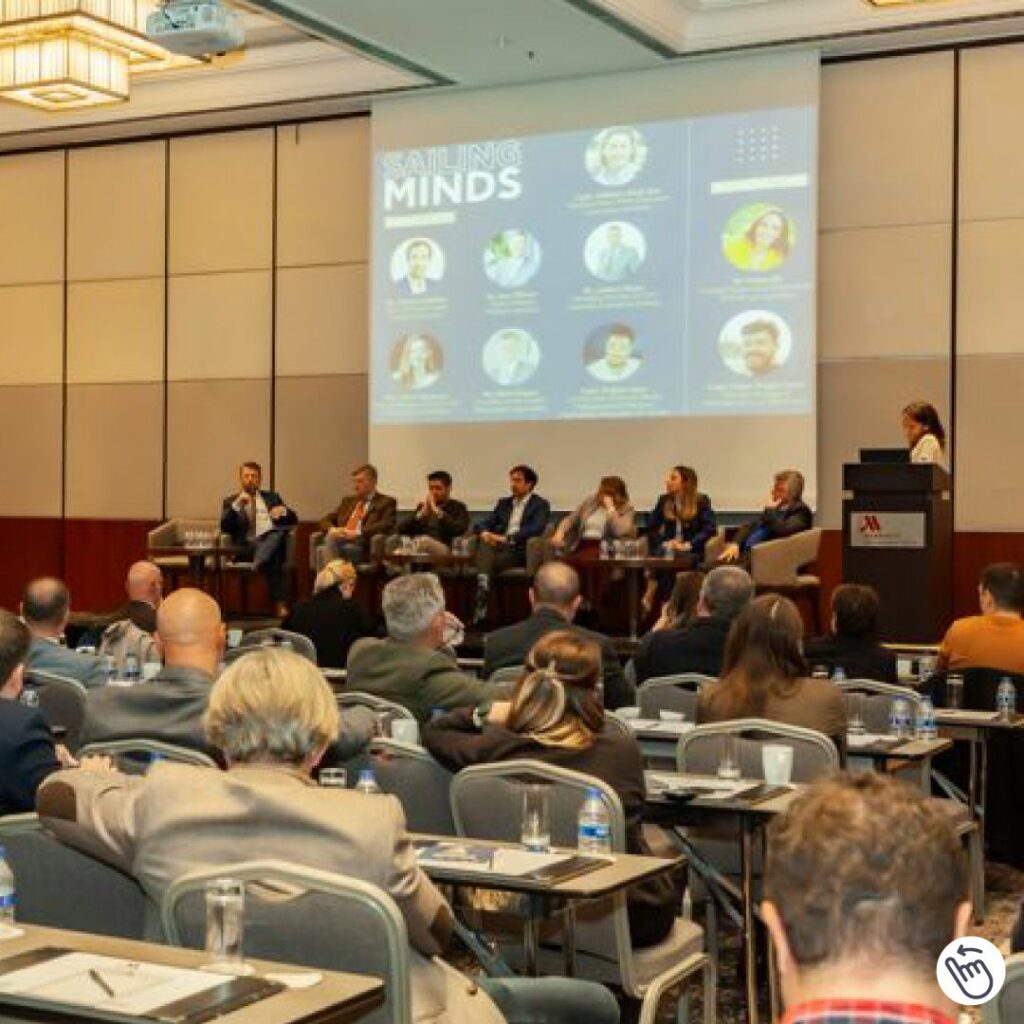

Mindful eating stems from the broader philosophy of mindfulness, a widespread, centuries-old practice used in many religions. Mindfulness is an intentional focus on one’s thoughts, emotions, and physical sensations in the present moment. Mindfulness targets becoming more aware of, rather than reacting to, one’s situation and choices.
Eating mindfully means that you are using all your physical and emotional senses to experience and enjoy the food choices you make.
Mindful eating helps individuals to appreciate food more and make a better connection with it. Some studies also suggested that mindful eating might help support emotional eating and binge eating, promoting a healthier relationship with food, regulate appetite, aid digestion, and make eating an enjoyable and pleasurable experience.
Mindful eating isn’t about restricting yourself, it is about enjoying and appreciating food.
- Slow down when eating: Chew your food well and take time to pause while you’re eating by putting your cutlery
down between each mouthful. It may help you feel more relaxed and help you enjoy your eating experience. Slowing eating can allow your body to recognise when it is full. - Avoid distractions: Avoid eating while you’re on your laptop, phone, reading or watching TV so that you can relax and enjoy your food in the moment.
- Reflect on your thoughts and feelings: Recognise when you are eating for reasons other than physical hunger. Sometimes emotions can trigger hunger and have a negative eating experience.
- Plan and stick to regular mealtimes: A meal planner helps to eliminate the stress around grocery shopping and meal preparation. Also, consider eating at regular times throughout the day. This helps to regulate your levels of hunger which could impact positively on your eating behaviours and food choices.
- Enjoy each mouthful: Food is more than just fuel. Take time to enjoy the aromas, the texture, and the flavours of your meal.
- Avoid empty calories: Choose nutritious foods that are satisfying to you, give you energy and are nourishing to your body.
- Avoid labelling foods: There aren’t ‘good’ or ‘bad’ foods, all can be part of a healthy diet if, we aim for variety and do not exceed our portion sizes.

Adopting healthier and better habits related to mental, physical, and social wellebing is shown to have a positive impact to an individual’s’ mood.
Moreover, individuals who choose to track their happiness status are more likely to be motivated to keep up with the habit and to improve their happiness because of it.
Download the OCS August Calendar and colour your days.
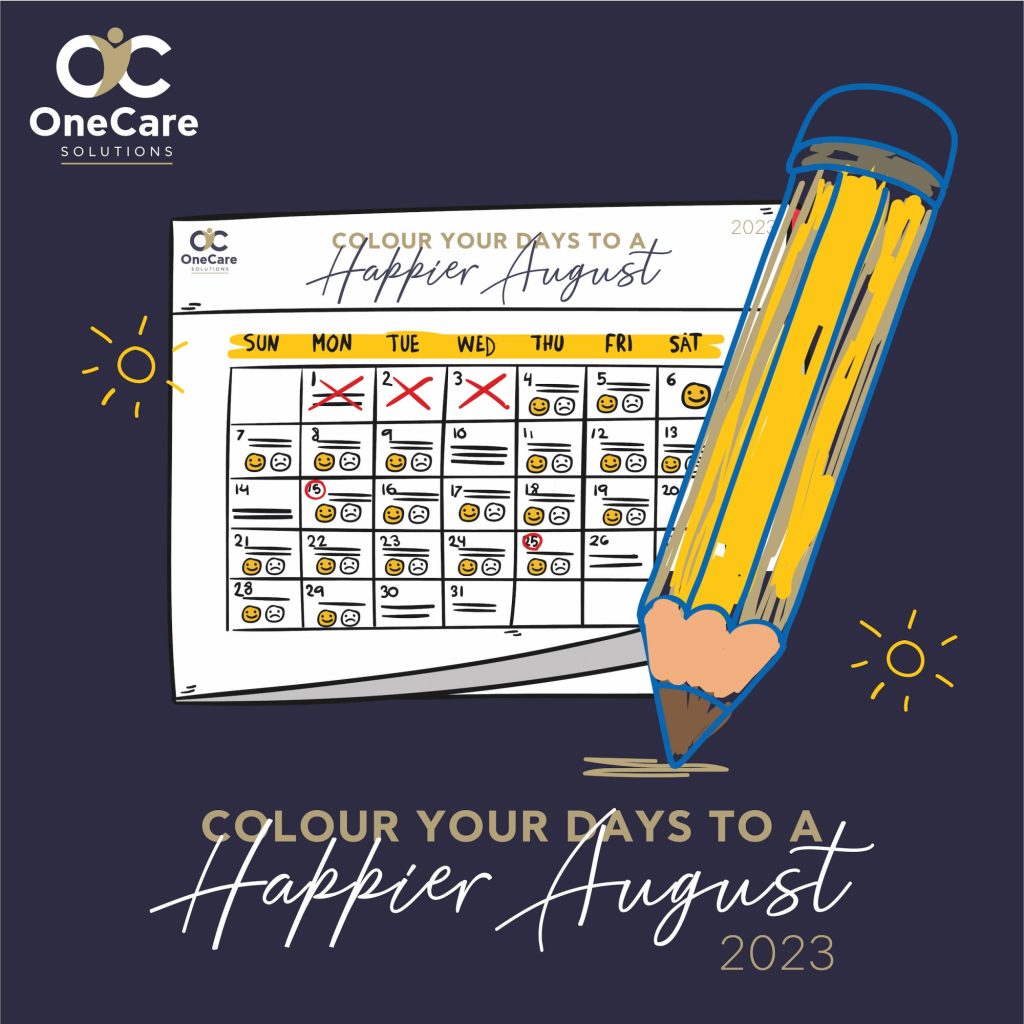
A pet can be a great source of comfort and motivation. In many ways, pets can help us to live mentally healthier lives.
Caring for a pet can help our mental health in many ways, including:
- Increasing your physical activity as pets need regular walking or playing.
- People who exercise regularly have better mental health and emotional wellbeing, and lower rates of mental illness.
- Providing companionship.
- Pets can give you a sense of security and someone to share the day with. Caring for them can help you feel wanted and needed. This can be especially valuable for older people or those who live alone.
- Reducing anxiety.
- The companionship of a pet can help to ease your anxiety.
- Boosting self-confidence.
- Pets can be great listeners, offer unconditional love and won’t criticise you. This can help your self-confidence, especially if you feel isolated or misunderstood.
- Helping you meet new people.
- Dog owners often stop and chat with each other on walks. But other pets can be a way to meet people too in pet shops, training classes or online groups.
- Adding structure to your day.
- Feeding, exercising, and caring for a pet can help you keep to a daily routine, which can help you feel more grounded and focused. It can give your day purpose and a sense of achievement.
Having a pet is a serious commitment.
You’ll need to have the time, money, and energy for a pet, as well as a calm home environment with routine and consistency.
Fostering a pet or helping a friend with theirs can help you see whether having your own is right for you.
If you cannot get your own pet but would like to experience all the health benefits a pet can offer you may do so through volunteerism to local shelters.
Bloating is very common and can be caused after consuming certain foods and drinks, or by swallowing air when we eat. It can also be a result of digestion issues like constipation, food intolerance, coeliac disease, and irritable bowel syndrome.
The good news is that we can avoid or ease bloating and relevant symptoms by changing certain eating and lifestyle habits.
Eating Habits:
- Not eating too much at a time as being too full can make your tummy feel uncomfortable.
- Chewing your food more. This can make it easier for you to break down food and make it go through your body more easily. Chewing more means you don’t swallow so much air. Also, it makes you eat more slower which can stop you from eating too much in one go.
- Eating 5-6 smaller meals/ snacks per day, so you don’t get too full at any one time.
- Try not to miss any meals or eat late at night.
- Eating less fat. Fatty foods can take longer to go through your body and means your stomach is full for longer, and this can cause bloating. Ways to have less fat include:
- eating less fried or creamy foods.
- taking fat that you can see off meat before you cook it.
- grill or oven bake foods rather than frying them.
- Hot drinks can help food to go through your body more easily, but drinks such as too much coffee can make bloating and stomach problems worse. Try to only have 2-3 cups a day of drinks with caffeine in them. Instead try mint or fruit teas or decaffeinated tea and coffees.
- Cutting down on what alcohol you have as this can also make stomach problems worse.
- Certain foods can make you have more wind (gas). If this wind stays in your stomach (and it doesn’t pass through your body and come out as wind) it can make you feel uncomfortable and bloated. There are some foods which might give you more wind, so try to cut down on foods such as:
- beans and pulses;
- vegetables such as brussels sprouts, cauliflower, garlic, onions, cabbage, leeks, mushrooms;
- fruit such as apples, cherries;
- some artificial sweeteners such as xylitol, sorbitol and mannitol which are commonly added to sugar-free products like fruit squashes, mints or chewing gum. If you cut down these foods, but it doesn’t help your bloating, you can start eating them again.
- Eating more soluble fibre. You could eat more oats or oat bran (such as oat-based breakfast cereal or porridge) or try adding linseeds or flaxseeds (starting with ½ tablespoon a day and building to 1 tablespoon twice a day as required). Make sure you drink an additional 200ml water with each tablespoon of seeds that you add so that you don’t get constipated.
- Add pro and prebiotics to your diet plan
- Foods rich in Probiotics: yogurt, kefir, sauerkraut, tempeh, kimchi, miso, kombucha, pickles, traditional buttermilk, natto, some types of cheese
- Foods rich in Prebiotics:
Lifestyle Habits:
- In some people, stress slows down how food goes through your body, which can cause bloating, pain and constipation or it can cause an upset stomach and diarrhoea. Stress can make you not feel like eating, or it can make you gulp air. It can be difficult to avoid all stress but having ways to help you manage the stress can be useful. For example, when you are tense, practise slow breathing or mindfulness exercises. If you are feeling very anxious, stressed, or unhappy then it may help to try and calm yourself before eating. Try to keep mealtimes happy and relaxed and put off any difficult conversations until after a meal.
- Wear clothes that are not too tight around your waist, as these can increase the pressure on your stomach and make it harder for wind to pass along normally.
- Having a warm bath, and spend time soaking, and relaxing. The heat of the bath can help a sore tummy. Doing this and finding other ways to relax can help you feel less stressed, and this helps your stomach.
- Consider counselling to talk about the things that you are finding difficult or stressful. There may be things about your critical illness that you are upset about and need support with.
- Exercise and massage.
Physical health that depends to our diet, exercise, and sleep, are closely related and affected by our mental health wellbeing.
Each May that is observed as the Mental Health Awareness Month, is an opportunity to refocus on self-care, improve our relationships with others, adopt healthier eating and exercise habits, improve our sleep hygiene and seek for professional support if need.
Take the first step and Download our Mental Health Calendar – May 2023 to find 31 ways to a Healthier You.
If you’re visiting the Hellenic Maritime Forum and are intrigued by what OneCare Solutions can do for the mental health and well-being of your crew, do reach out to Managing Director Marinos Kokkinis at our booth!
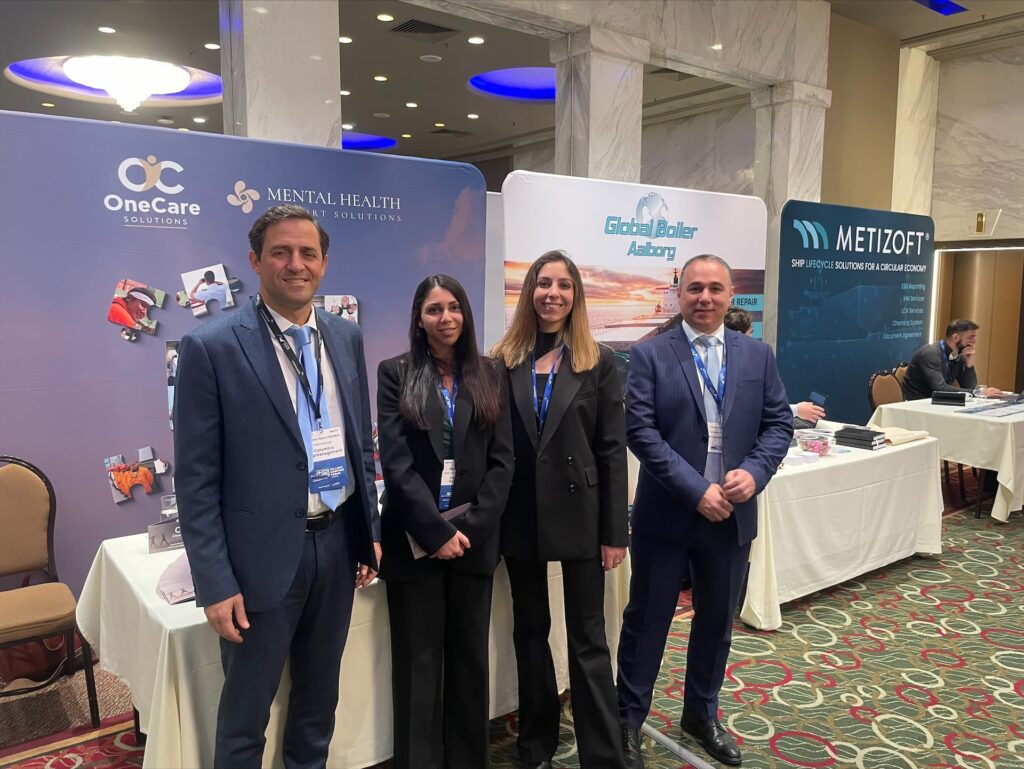
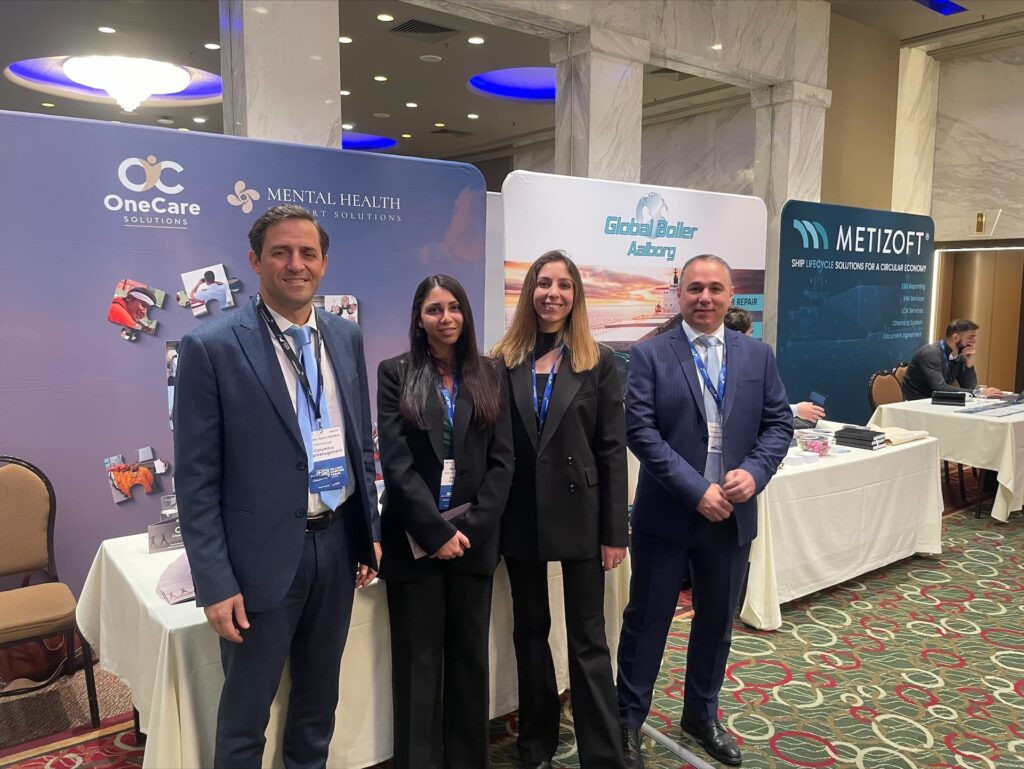

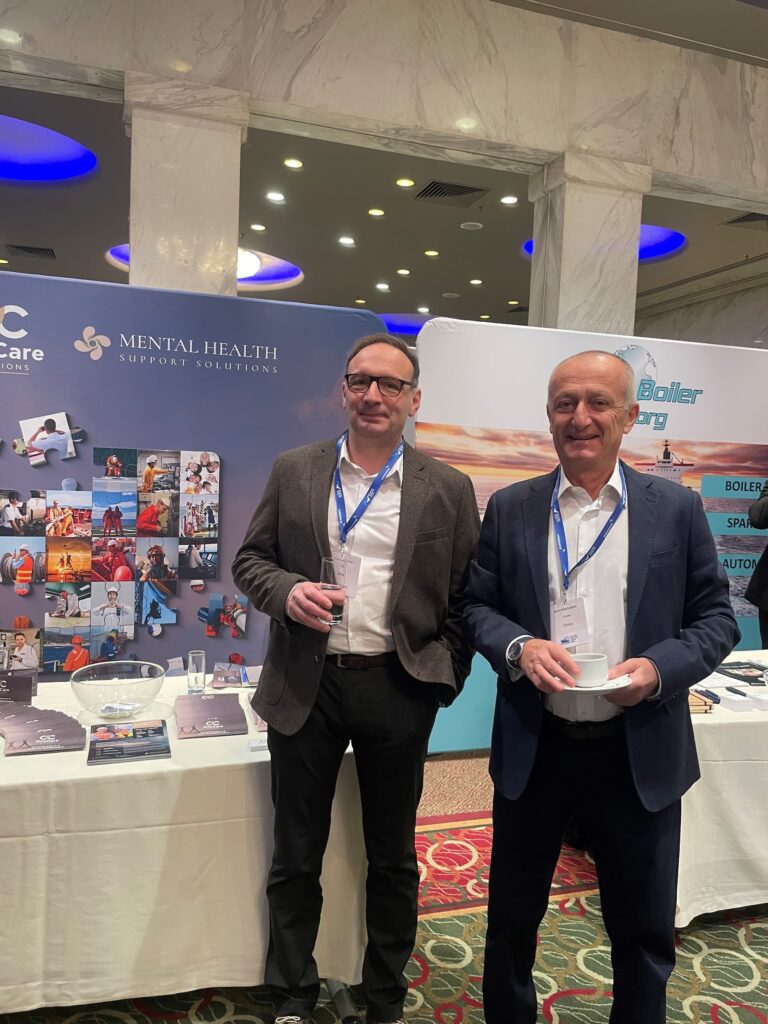
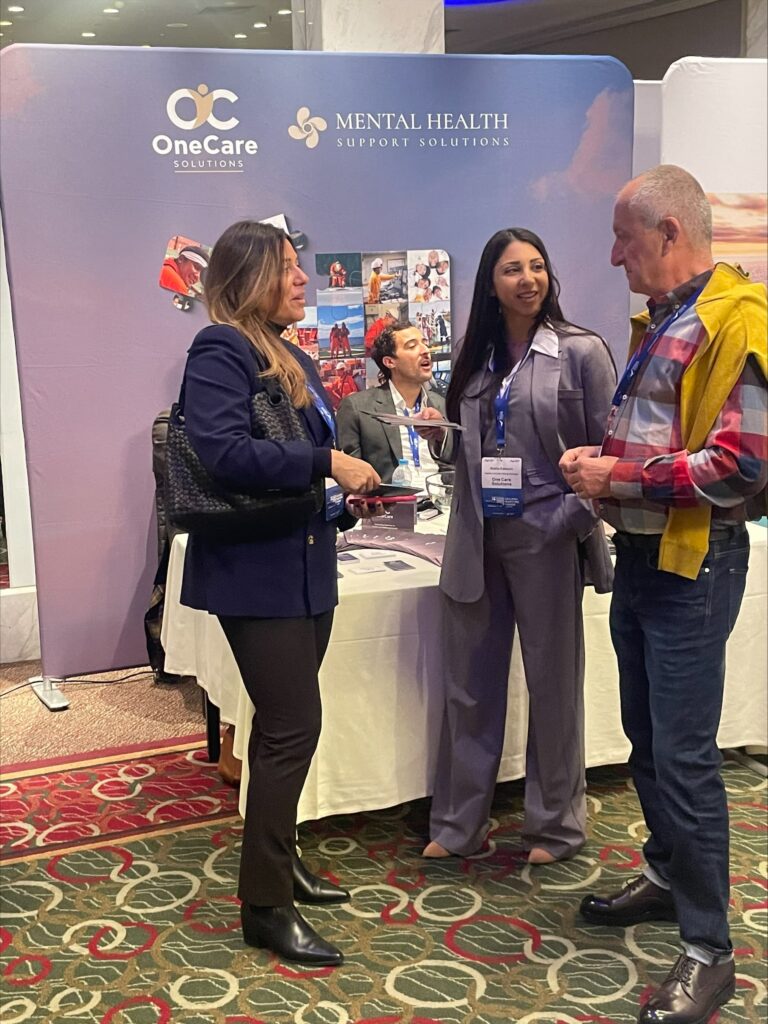





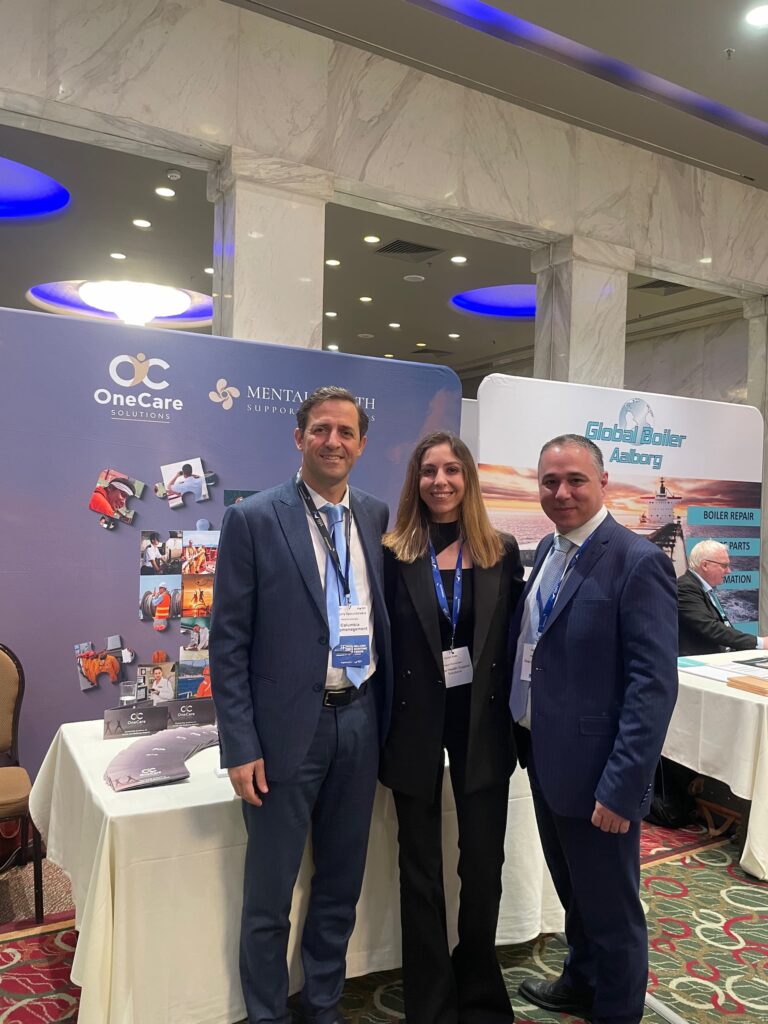

Meet us at East Med Marine and Offshore Exhibition 2023
April 20th & 21st at the Grand Resort Limassol Cyprus
Our team will be at your disposal to discuss issues regarding crew health, well-being, and training.
OneCareSolutions addresses the full spectrum of seafarers’ health and well-being with 24/7 direct access to medical expertise and mental health support. Access to holistic wellness programs, assistance from public and physical health specialists, as well as support with medical supplies and tailored mental health and healthy lifestyle-related training.